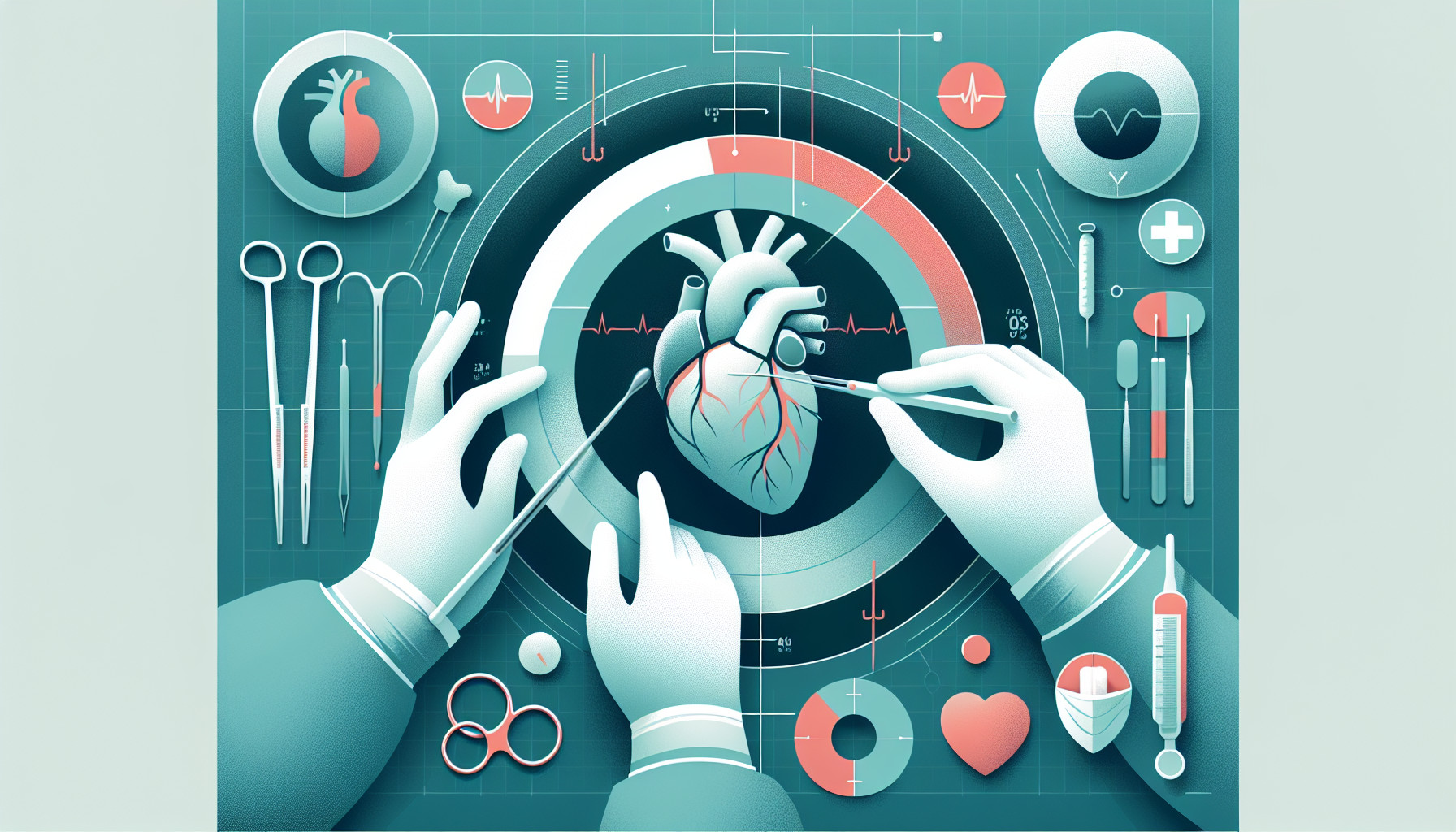Our Summary
This research paper discusses a new device that can track temperature changes in heart tissue during a medical procedure called ablation. Ablation is used to treat irregular heartbeats, and understanding temperature changes can help improve the effectiveness of the procedure. The device is a thin, flexible, needle-like structure that can be inserted into the heart tissue. It can monitor two types of ablation - radiofrequency and cryoablation - without interfering with the heart’s normal movements. The results from the device match well with thermal simulations, offering better insights into the procedure.
FAQs
- What is the purpose of the new device discussed in the research paper?
- How can the new device help improve the effectiveness of cardiac ablation procedure?
- What types of ablation can the device monitor without interfering with the heart’s normal movements?
Doctor’s Tip
One helpful tip a doctor might give a patient about cardiac ablation is to make sure to follow all pre-procedure instructions, such as fasting before the procedure and stopping certain medications as directed. It is also important to discuss any concerns or questions with your healthcare provider before the procedure to ensure you are well informed and prepared. Additionally, following post-procedure care instructions, such as taking prescribed medications and attending follow-up appointments, is crucial for a successful recovery.
Suitable For
Patients who are typically recommended for cardiac ablation are those with abnormal heart rhythms, such as atrial fibrillation, atrial flutter, or ventricular tachycardia, that have not responded to medication or other treatment options. These patients may experience symptoms such as palpitations, dizziness, chest pain, or fainting episodes. Cardiac ablation is often recommended for patients who have a high risk of complications from their abnormal heart rhythms, or for those who wish to reduce their reliance on medication. Additionally, patients who have structural heart disease, such as heart defects or previous heart attacks, may also benefit from cardiac ablation. Ultimately, the decision to undergo cardiac ablation is made on a case-by-case basis by a cardiologist or electrophysiologist.
Timeline
Before cardiac ablation:
- Patient is evaluated by a cardiologist and undergoes various tests such as an ECG, echocardiogram, and possibly a cardiac catheterization to determine the source of the irregular heartbeats.
- Once the decision is made to proceed with cardiac ablation, the patient may be required to stop taking certain medications and fast for a period of time before the procedure.
- The patient will be given instructions on what to expect during the procedure and any potential risks or complications.
During cardiac ablation:
- The patient will be given anesthesia to make them comfortable and pain-free during the procedure.
- A catheter will be inserted into a blood vessel, usually in the groin, and guided to the heart.
- The cardiologist will use the catheter to deliver energy (either radiofrequency or cryoablation) to the areas of the heart causing the irregular heartbeats, creating scar tissue to block the abnormal electrical signals.
- The procedure can take several hours, depending on the complexity of the arrhythmia being treated.
After cardiac ablation:
- The patient will be monitored closely in a recovery area for a few hours to ensure there are no complications.
- Most patients are able to go home the same day or the next day, but may need to take it easy for a few days to a week.
- Follow-up appointments will be scheduled to monitor the effectiveness of the ablation and make any necessary adjustments to medications.
- In some cases, additional ablation procedures may be needed to fully treat the arrhythmia.
- The patient should see an improvement in their symptoms and quality of life following successful cardiac ablation.
What to Ask Your Doctor
- What is cardiac ablation and why is it being recommended for me?
- What are the potential risks and complications associated with cardiac ablation?
- How successful is cardiac ablation in treating irregular heartbeats?
- How long does the procedure typically take and what is the recovery process like?
- Will I need to take any medications before or after the procedure?
- Are there any lifestyle changes I should make after undergoing cardiac ablation?
- How often will I need follow-up appointments or monitoring after the procedure?
- Will I need to undergo any additional tests or procedures in the future?
- Are there any alternative treatments or options available for my condition?
- How experienced are you in performing cardiac ablation procedures, and what is your success rate?
Reference
Authors: Koh A, Gutbrod SR, Meyers JD, Lu C, Webb RC, Shin G, Li Y, Kang SK, Huang Y, Efimov IR, Rogers JA. Journal: Adv Healthc Mater. 2016 Feb 4;5(3):373-81. doi: 10.1002/adhm.201500451. Epub 2015 Dec 9. PMID: 26648177
